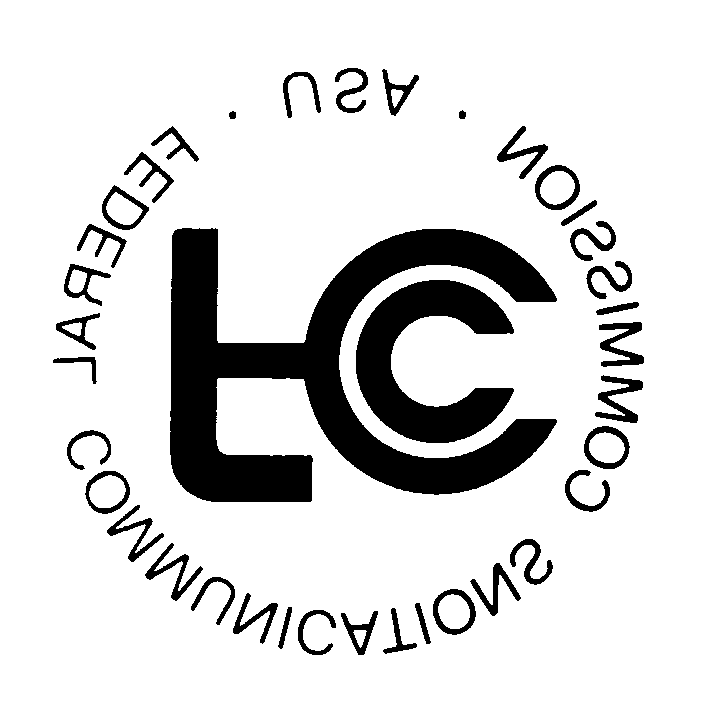Section 80.103, Digital Selective Calling (DSC) Operating Procedures; Maritime Mobile Services Identity (MMSI)
Section 80.103, Digital Selective Calling (DSC) Operating Procedures; Maritime Mobile Services Identity (MMSI)
0931_PNforMMSI_050409
Section 80.103, Digital Selective Calling (DSC) Operating Procedures; Maritime Mobile Services Identity (MMSI)
OMB: 3060-0931

FEDERAL COMMUNICATIONS COMMISSION
1919 M STREET, N.W.
WASHINGTON, D.C. 20554 FCC 97-69

News media information 202/418-0500 Fax-On-Demand 202/418-2830 Internet: http://www.fcc.gov ftp.fcc.gov
Released: March 6, 1997
FCC SEEKS COMMENT REGARDING REVISION OF PROCEDURES FOR ASSIGNING MARITIME MOBILE SERVICE IDENTITIES
As part of its ongoing effort to streamline processes and provide rapid service to the public, the Commission is considering revising its procedures for the assignment of maritime mobile service identities (MMSIs).
An MMSI is a unique nine-digit number assigned by the Commission to commercial and recreational U.S. vessels participating in the Global Maritime Distress and Safety System (GMDSS). As required by treaty, the Commission assigns MMSIs in accordance with the International Telecommunication Union (ITU) Radio Regulations and periodically notifies the ITU of assignments made to vessels traveling or communicating internationally. The Commission's rules as well as the ITU Radio Regulations require vessel owners to obtain an MMSI prior to using a digital selective calling (DSC) radio or an INMARSAT ship earth station.
MMSIs are programmed into marine radio equipment to provide (1) a unique, internationally standardized number for contacting a vessel in cases of distress or safety, regardless of the radio system involved, (2) a common method for authorities to gain useful information concerning a distress incident, and (3) a common number for billing and settlement of accounts for public correspondence. For example, for DSC radio equipment, the MMSI functions similar to a "phone number" for contacting a specific vessel. Upon receiving a distress alert containing an MMSI, authorities such as the U.S. Coast Guard may use the MMSI to find out background information about the vessel (e.g., owner's name, intended route, and other radio equipment on board) and to help determine whether the alert is false. Thus, an accurate MMSI database can help to protect lives and property at sea by reducing the time it takes to locate vessels in distress.
Presently, the Commission assigns MMSIs through the ship station licensing process. This process requires applicants to file FCC Form 506, along with the appropriate fee, with the Commission. Because of the large number of radio-equipped U.S. vessels (over 750,000) and the anticipated popularity of DSC radios among commercial and recreational vessels, continuing the present assignment method could mean unnecessary administrative burdens and processing delays for both the maritime community and the Commission. Further, vessels
-- OVER --
that are not required by law to carry a radio and do not make international voyages or communications are no longer required to obtain an individual license.1 Thus, the Commission must consider another method for assigning MMSIs to these "exempt" vessels.
In order to improve upon existing procedures, the Commission is considering whether to provide blocks of MMSIs to qualified entities for distribution to vessel operators. By this Public Notice, we invite qualified parties to express their interest in participating in distributing MMSIs to vessel operators. In order to be considered for participation, an entity, at a minimum must be prepared to: (1) issue an MMSI to any U.S. vessel operator; (2) collect and store information in an electronic database about each vessel issued an MMSI; and, (3) provide database access to the U.S. Coast Guard. Technical details for this procedure (e.g., where the MMSI database will reside, how to ensure database access for all parties) will be developed upon mutual agreement between the participants, the Commission, and the U.S. Coast Guard. Interested parties should submit a non-binding letter of intent within 30 days after release of this Public Notice to the address below or via email to "[email protected]". The letter should set forth a brief description of the organization, the organization's ability to comply with the minimum requirements described above, and a point of contact.
Federal Communications Commission
Private Wireless Division
Assistant for Maritime and Aviation Services
2025 M St., NW
Room 8010
Washington, DC 20554
For further information, please contact Roger Noel or Ira Keltz of the Commission's Private Wireless Division at (202) 418-0680.
Action by the Commission February 27, 1997.
-- FCC --
1 ? See Amendment of Parts 80 and 87 of the Commission's Rules to Permit Operation of Certain Domestic Ship and Aircraft Radio Stations Without Individual Licenses, WT Docket No. 96-82, Report and Order, FCC 96-421 (released Oct. 25, 1996).
| File Type | application/msword |
| File Title | PUBLIC NOTICE |
| Author | JSHAFFER |
| Last Modified By | Judith-B.Herman |
| File Modified | 2009-05-04 |
| File Created | 2009-05-04 |
© 2026 OMB.report | Privacy Policy